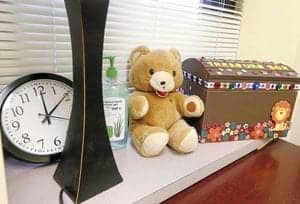The Zeo Personal Sleep Coach, an educational tool and motivational program designed for consumers, is now offered by Zeo Inc, Newton, Mass. The Zeo Personal Sleep Coach is designed to help consumers without sleep disorders understand how they are sleeping, uncover habits that affect sleep, and learn ways to improve sleep. “The Zeo is neither a medical device nor a medical program and is not intended for the diagnosis or treatment of sleep disorders,” the company says.
According to Michael Breus, PhD, an advisory board member for Zeo, although the Zeo Personal Sleep Coach is not diagnostic in nature, it has been validated against full nighttime polysomnography, and it has been shown to be valid with PSG.
“While the Zeo isn’t diagnostic in nature, it is very informative,” says Breus. “It is a great educational tool for people who have sleep issues. There is a tremendous number of people out there who just have poor quality sleep—this is the type of tool that can be used as an adjunct to teaching people about their sleep, and it can teach them more about improving the overall quality of their sleep.”
The Zeo Personal Sleep Coach is comprised of four components:
• Zeo headband
• Zeo bedside display
• myZeo sleep data Web site
• 7-Step Sleep Fitness Program
After the Zeo headband is worn overnight, collected data is wirelessly transferred to the bedside display to be accessed by the user. Information includes graphs, data, and a ZQ, the numerical summary of 1 night’s sleep developed by Zeo.
The myZeo Web site allows users to upload the data collected by the Zeo Personal Sleep Coach to get a more in-depth look at how their individual sleep can be improved. The site contains data tools, a sleep journal, a sleep information center, and the 7-Step Sleep Fitness Program.
“[The Zeo] is a good adjunct for general sleep hygiene recommendations. Lots of [sleep professionals] will give people a sheet with information regarding sleep hygiene on it. At the end of the day, that’s not particularly effective,” says Breus. “[With the Zeo], you literally turn over in the morning and you are instantly given information [about the previous night’s sleep]. “
Breus clarifies that the Zeo is not just a glorified version of actigraphy. “The difference between this and actigraphy is that this does tell you about deep sleep (Stage 3, 4) and it identifies REM sleep. Those are the two big differences between this and actigraphy.”
Because the Zeo is not designed for people with serious sleep disorders, such as narcolepsy, sleep-disordered breathing, and even insomnia, the very first coaching module that every user must go through helps people identify if there are any medical underpinnings to their current sleep issues.




